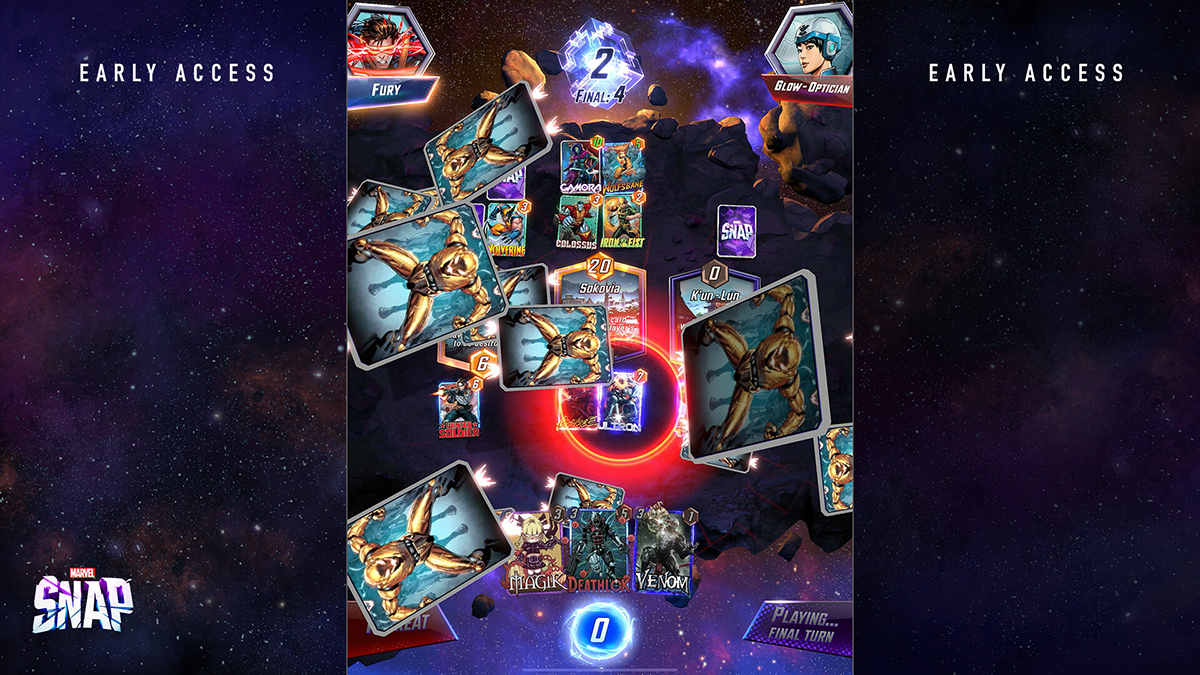Almost exactly one year after its reveal, Warhammer 40,000: Boltgun has graced PC and modern consoles with its retro, “boomer shooter” take on the merciless and grim world of Games Workshop’s dark future sci-fi universe. While the IP is no stranger to trying its luck with off-beat approaches to well-trodden genres, Boltgun feels like a bolder project for the franchise, one whose size may be its biggest strength.
The game was initially selling below $20 with a launch discount, with the full price barely going above that mark. That alone would catch the attention of many gamers who hadn’t been paying attention to its gory marketing campaign. On top of that, it has garnered a very positive reception so far. At that price point, a solid Doom clone that has tons of fun with WH40K property seems like a pretty sweet deal amidst a barrage of massive AAA releases and indie darlings. What’s stopping other big IPs from putting out more releases like this one regularly?

Image via Focus Entertainment
A few weeks ago, I made a case about why a Star Wars musou title made sense as part of Lucasfilm Games’ renewed “go wide or go home” strategy when it came to one of the most profitable franchises in history. Mind you, a Star Wars game that belonged to that genre would be a remarkably bigger project than Warhammer 40K: Boltgun, but we can use the (apparent) success of the latter to reinforce the idea of massive brands toying with very different possibilities in the gaming space, as opposed to solely focusing on giant games that can sink entire studios if they underperform.
Both Warhammer and Star Wars need big releases — just look at Space Marine 2 — but only the former appears to be using its fame to diversify into different spaces. It’s hard to deny many Warhammer 40K games don’t turn out good at all, but it’s way easier to recoup losses when most projects are mid-sized at best. In the case of Boltgun, things were taken a step further by enlisting independent studio Auroch Digital to cook up what’s basically a Warhammer 40K-themed riff on the modern conception of boomer shooters. At first glance, Boltgun might look like the simple Doom clone I mentioned before, but it actually wears many different influences proudly on its Ultramarine-sized chest.

Image via Focus Entertainment
The cool thing about smaller video games, much like smaller films or TV series, is that there’s more room for experimentation. This type of creative freedom is generally born out of necessity, but in many cases, budgetary constraints have led to unforgettable innovations and pleasant twists on tired formulas. For franchises as big as Star Wars (again, it’s just a pretty good example for my angle), this prospect should be enticing instead of scary. With the franchise currently scrambling to chart an on-screen future past the Skywalker Saga, one also has to wonder whether it can escape the creative clutches of past glories like Knights of the Old Republic or the Jedi Knight games.
At some point, fans of Star Wars and The Lord of the Rings will begin asking for video games that exist outside the AAA zeitgeist. A brand new Lord of the Rings MMORPG may look attractive on paper after LotR Online shambling along for over 15 years, but if Embracer’s ambitious plans for the IP in the gaming space don’t extend beyond big open-world action-adventure games and World of Warcraft but Tolkien, we might start hoping for a sequel to Gollum just to sink our teeth into something different.

Image via Nacon
It might just be an anomaly, but it seems like Disney and Lucasfilm Games are rolling at least one die with Respawn and Bit Reactor’s upcoming strategy game. While turn-based strategy titles are actually doing fine, mainly thanks to the newer XCOM and Fire Emblem entries, it’s been a while since Star Wars or another huge Hollywood franchise has toyed with the genre (outside of mobile cash grabs). That project probably won’t be small at all, but it feels like a step in the right direction if we’re looking at Star Wars demolishing its video game floodgates like the late LucasArts did in the 2000s.
Aside from Warhammer’s “throw everything at the wall and see what sticks” approach to producing a varied portfolio of video games, another path forward for these immense properties may be the one walked by Marvel recently. Last December’s Marvel’s Midnight Suns was anything but a safe bet — and it ultimately underperformed despite the rave reviews — and Marvel Snap appears to have cracked the balance of lassoing diehard fans and casual players alike, all while printing money on a presumably limited budget.

Image via Nuverse
In both cases, it’s easy to see the developers made the most out of the Marvel brand’s inherent weirdness and most fun characters over trying to create bombastic roller coaster rides like Insomniac’s Spider-Man titles. It’s as if the Disney and Marvel bosses finally realized all the untapped potential of the Marvel universe to create products that don’t have to be gargantuan mainstream home runs… but might become one against all expectations. There’s always the example of looter shooters generally sucking ass to remind rights holders and publishers that spending way too much money and time on the same thing but swapping brands isn’t a viable strategy anymore. AAA behemoths based on famous IPs needn’t go anywhere, but they shouldn’t be the default. All kinds of pitches should be given a fair shake.
As we head into what might be the endgame of the “era of content soup” and immortal transmedia franchises, it’s important to at least ask for some degree of variety. I guess the point I’m trying to get across here is that swapping one big genre for another isn’t really a long-term solution to avoid fatigue and encourage innovation. Sometimes, we just need a lone Ultramarine chainsawing through pixelated monstrosities to feel hyped for a lone Ultramarine chainsawing through high-res monstrosities a few months later.






Published: Jun 1, 2023 02:09 pm